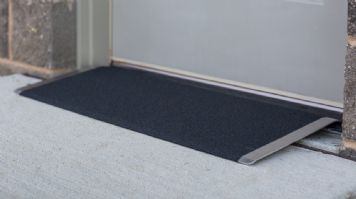 Written by Heather Collins, MSN, RN, CNOR
Written by Heather Collins, MSN, RN, CNOR
As a popular alternative to traditional nursing home care, aging in place has captured the attention of individuals and families worldwide. With an aging global population, the focus is on finding ways to maintain independence and enhance the quality of life at home. A key advantage of aging in place lies in its potential to delay nursing home admissions.
Aging in place has proven beneficial by effectively delaying nursing home admissions by eight months, thanks to the provision of care services and support, such as home health services. This approach allows seniors to enjoy a familiar setting for an extended period, positively impacting their overall well-being. In this discussion, we will explore strategies to ensure safety and promote a longer, healthier life through aging in place, as well as examine the role of caregivers and how to determine when it may be appropriate to consider a nursing home. For more information on this vital topic, be sure to visit our comprehensive Aging in Place content hub.
 | TRANSITIONS Angled Entry Plate by EZ ACCESS Ramps View Product |
 | Platinum Health Revolution Swivel Shower Chair View Product |
 | Amber Light Night Lights - 6-Pack View Product |
Creating a safe environment for aging in place requires careful planning and modifications to the home to minimize risks and potential hazards. To ensure the well-being of seniors, it is essential to declutter living spaces and take measures to prevent falls and other accidents. These modifications may include installing ramps for easier access in and out of the home, incorporating grab bars and shower seats in bathrooms, and ensuring adequate lighting for improved visibility, particularly at night. The specific adjustments will depend on the individual's unique needs and circumstances. Investing in home modifications for aging in place is a financially sound decision as nursing homes can be costly in the long run. These improvements provide seniors with a safe and comfortable living environment that can be tailored to their needs.
Aging in place is often seen as the key to living a longer and healthier life for various reasons. Up to 90% of seniors wish to remain in their homes as long as possible. While individual experiences may vary, most people value their autonomy and independence, and remaining in their own home enables them to maintain these qualities for a more extended period. Aging in place fosters self-esteem and contributes to overall happiness as seniors continue to reside in a familiar and cherished environment filled with memories. By staying connected to their community and enjoying the comfort of their home, older adults can lead more fulfilling lives, ultimately promoting better physical and emotional well-being.
Family and caretakers play an indispensable role in making aging in place a reality for seniors. As the unsung heroes of elder care, they provide invaluable support, working hand in hand with home health services, personal caretakers, maids, or other professionals to ensure the well-being and safety of their loved ones. While these services come at a cost, it's essential to remember that championing the needs of seniors is a worthy investment as they age. By creating a customized support network, families and caregivers empower their elderly relatives to embrace their independence, relish the familiarity of their surroundings, and revel in an enhanced quality of life. Together, they create an environment where aging in place can truly thrive.
Determining whether aging in place is a viable alternative to nursing homes largely depends on an individual's condition and needs. Many seniors successfully age in place, often with the support of hired help, effectively delaying their transition to a nursing home. With a growing number of tools and resources available, it is increasingly common for elderly individuals to live independently or semi-independently in their own homes.
By diligently following the suggestions outlined earlier, caregivers and family members can help make aging in place a reality for their loved ones. It is crucial to prioritize safety while creating a comfortable living environment. If managed correctly, the benefits of maintaining personal autonomy can significantly enhance the overall well-being and satisfaction of seniors as they age gracefully in their own homes.
Recommended: TRANSITIONS Angled Entry Plate by EZ ACCESS Ramps
Recommended: Platinum Health Revolution Swivel Shower Chair
Recommended: Amber Light Night Lights - 6-Pack
Determining the right time to consider a nursing home can be a challenging and emotional decision for both seniors and their families. One crucial factor to consider is the mental state of the elderly individual. If their mental state is compromised and they live alone, it may be time to explore nursing home options. However, if their mental state is compromised and they live with family members, products and solutions are available to support them at home, such as bed alarms.
Other factors to consider include whether the senior can no longer feed themselves if they are bed-bound, or if they require 24-hour skilled care. Ultimately, the decision to transition to a nursing home should be based on assessing the individual's overall well-being, safety, and the family's ability to provide the necessary care. By closely monitoring the senior's condition and needs, families can make informed decisions about the most suitable living arrangements for their loved ones.
Aging in place offers a promising alternative to traditional nursing home care, allowing seniors to maintain independence, enjoy familiar surroundings, and improve their overall well-being. However, it is essential to carefully assess each individual's unique needs and circumstances, ensuring a safe and supportive environment. By working together with family, caregivers, and professionals, aging in place can become a reality for many seniors, allowing them to live longer, healthier lives.
For further information on how to help your loved one age in place and the role of caregivers,explore our comprehensive Aging in Place content hub and Caregiver University. Empower yourself with the knowledge and resources necessary to make informed decisions about the best living arrangements for your elderly loved ones.

Heather Collins, MSN, RN, CNOR
Heather is a registered nurse and freelance health writer with a Master's degree and over 24 years of nursing and leadership experience. Heather cares for patients of all ages in various healthcare settings, including inpatient acute care nursing, GI procedural nursing, cardiac lab, infertility clinics, pediatrics, and surgical services. Heather is dedicated to providing high-quality care and sharing reliable, evidence-based information that empowers people to make informed decisions about their and their loved ones' health.